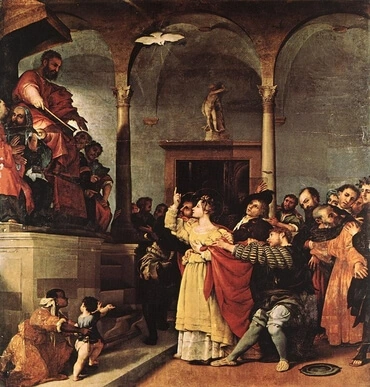People (nation)
The Bible generally uses two different terms for large groups: “people” and “nations.” When it uses “nation,” it is talking about a group with the desire for good as its ultimate underlying motivation; when it uses the term “people” it is talking about a group whose deep motivation is to seek true ideas and concepts. As with all symbolism in the Bible, this can be also used in a negative sense, to describe groups with the lust for evil or those driven by false concepts. It can also be used in the abstract, with “nation” representing desires for good themselves and “people” representing true ideas themselves. In a way, these meanings make sense if we look at the two words themselves. “People” brings to mind a collection of individuals, and that is somewhat how it is with ideas -- you can have many of them that inter-relate, but also stand somewhat on their own, individually. “Nation” is a more unified term, reflecting the way that a desire for good tends to unify other feelings.
Judge

It's easy to see the connection between judging and truth. In a court of law, the whole purpose of the judge is to find the truth. Any time anyone judges anything, we hope it is on the basis of the truth. It's no wonder, then, that judging and judgment in the Bible represent truth being put to work. Depending on the circumstances judging can be teaching truth, determining someone's character from truth or setting order to things according to truth. There is a twist, though -- when the Lord is referred to as a judge, it actually signifies Divine Good, rather than Divine Truth. This is because the Lord judges us ultimately from love, and his truth flows from that love.






